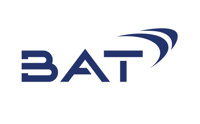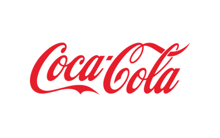Stocks to Weather the Tariff Crash
Summary
- Markets are taking a serious knock globally. The US lost $5-trillion in value in one week, and the JSE fell over 5%. Even safe bets like gold and Naspers didn’t offer much relief.
- Panicking never works, but pivoting smartly does. Market crashes are scary but not new. Shapiro and others remind us that staying calm and diversified helps you bounce back stronger. Now may be a time to rethink sectors, not exit.
- Where investors are looking now: Think healthcare, consumer staples, and select alcohol/tobacco stocks. Defensive companies like BAT, Philip Morris, Coca-Cola, and even European arms manufacturers are on watchlists.
The overriding rule from those who’ve seen it before is: don’t lose your nerve. That’s not to say your portfolio can’t do with a few tweaks.
Veteran stockbroker David Shapiro seems disconcertingly unflustered by the market meltdown that has wiped out several trillion dollars of value in equity markets across the globe. Five-trillion gone in the US alone in the past week. In the UK the FTSE all share is down 7.05%; the German DAX dropped 4.2% and France’s CAC 40 shed 3.7%.
Back home the JSE all share was down 5.26% on the week. And anyone who hoped the tariff-pass granted to the country’s platinum and gold exports would provide some buoyancy will have been dismayed to see platinum and gold shares leading the downward charge. Not even the usual old market stalwart Naspers was able to provide relief; it lost 6.59% on the week.
Look a little closer at the JSE Inc shares and you’ll realise the overall drop flatters the South African picture. “Our retailers and banks have been savaged,” Shapiro tells Currency. So why is he not flustered? “I’ve been around a long time,” he says, recalling the 1987 crash, the Asian financial crisis of 1997, the dot-com “correction” in 2000, the global financial crisis in 2008 and, most recently, the March 2020 Covid collapse.
There is also a strong case for arguing that the supply-chain challenges resulting from Russia’s 2022 invasion of Ukraine represent the most recent mini-crisis.
Not panicking seems the best way to survive market crashes. Any market pro will tell you. And that’s certainly the message from Paul Kaplan, former Morningstar director of research. In his book, Insights into the Global Financial Crisis, he describes 19 crashes in the US market, most of which sparked meltdowns in other global markets, during the past 150 years. The outbreak of World War I, which led into the influenza pandemic, caused the worst market pain in those 150 years. This was followed by the Great Depression of 1929 when the US market lost 79% of its value over the course of the following bear phase.
The Covid crash was dramatic in its intensity. The US stock market lost nearly 8% on that fateful day in March 2020 and the JSE followed with a 9.7% slump. But markets bounced back within months, so the Covid experience doesn’t technically qualify as a “crash”, which is defined as a fall of at least 20%. But the Ukraine invasion was another matter. By Kaplan’s reckoning the market consequences of that dragged out until March 2024. If it didn’t seem so bad from a distance, it was because much of the impact was masked by the staggering performance of tech stocks.
If you hadn’t panicked during all those trauma-filled, nerve-wracking years, well done – because it turns out that despite all those sharp swings in fortune, the equity market has generated great returns over the long term. But – and yes, there’s always a panic-inducing “but” in these matters – you had to have a smart, well-diversified portfolio. You couldn’t just stick your money in a few shares and go off to the beach.
A ‘very emotional period’
Consider that the average lifespan of a company listed on the S&P 500 is currently about 15 years and falling. That compares with about 67 years in the 1920s. The story is the same here in South Africa. Companies are either disappearing or being restructured out of recognition.  The ability to be flexible and anticipate the next wave is what’s made Warren Buffett’s Berkshire Hathaway so successful over the long-term. Since early 2024 the company has outperformed most of the tech giants and is expected to continue to do so during the turbulent times ahead, thanks largely to its enormous cash resources. Recall last year’s selling spree, which included almost halving its stake in Apple? For a few months the Apple disposal didn’t look too smart, but in the past week, with Apple one of the worst casualties of Trump’s tariff debacle, the move is looking remarkably prescient.
The ability to be flexible and anticipate the next wave is what’s made Warren Buffett’s Berkshire Hathaway so successful over the long-term. Since early 2024 the company has outperformed most of the tech giants and is expected to continue to do so during the turbulent times ahead, thanks largely to its enormous cash resources. Recall last year’s selling spree, which included almost halving its stake in Apple? For a few months the Apple disposal didn’t look too smart, but in the past week, with Apple one of the worst casualties of Trump’s tariff debacle, the move is looking remarkably prescient.  So, short of putting all you have into Berkshire Hathaway and hoping it retains its decades-long mainly winning streak, where should wary investors be looking now? What regions of the globe and what sectors of those regions are looking, if not vibrant at least, less vulnerable. “It’s not easy to decide that,” says Shapiro. “We’re going through a very emotional period now but hopefully it will settle down soon.” Unfortunately, of course, that depends on Trump. “If he continues, sentiment will collapse.”
So, short of putting all you have into Berkshire Hathaway and hoping it retains its decades-long mainly winning streak, where should wary investors be looking now? What regions of the globe and what sectors of those regions are looking, if not vibrant at least, less vulnerable. “It’s not easy to decide that,” says Shapiro. “We’re going through a very emotional period now but hopefully it will settle down soon.” Unfortunately, of course, that depends on Trump. “If he continues, sentiment will collapse.”
Despite his concerns about the fragility of the US economy and the impact of the tariff burden on consumers, Shapiro says he would still be investing in the US. And though some of the shine has come off the tech counters that are also being damaged by Trump’s tariffs, Shapiro thinks at current levels they’re looking attractive. “There’s nothing I really like in Europe; it does have some good businesses, but it has a long way to go before it catches up with the US, which still has the strongest businesses in the world,” Shapiro tells Currency before adding: “Trump could change that.”
He doesn’t rule out China as a sort of safe haven but cautions that the Asian giant does have problems of its own, such as chronically weak consumer demand.
Jean Pierre Verster, CEO of Protea Capital Management, also seems unruffled by the swirling geopolitics. “Yes, the JSE suffered a big knock over two days, but that only took it back to January levels,” he says. He acknowledges that it’s impossible to know what’s going to happen in the coming months, but has identified a number of potentially winning sectors.
They include the sort of staples that survive all manner of disruptions. Health-care stocks, both health insurers and health-care providers, are at the top of his list.
Mind you, not all health-related shares are on his list. Verster is picky. He’s not interested in pharmaceuticals, explaining “Kennedy [RF Kennedy Jr, Trump’s health secretary] has drug companies in his sights, but he’s not targeting insurers or providers”.
Somewhat ironically, tobacco and alcohol shares are also on his list. On the tobacco front Philip Morris and British American Tobacco (BAT) are looking attractive, and then there’s Altria, which offers access to cigarettes and alcohol through its stakes in Philip Morris and Anheuser-Busch respectively.  Gold and gold shares are not on his list, for the moment. “Gold does well in the lead up to uncertain events, think about Covid and Ukraine, but the moment that event has passed gold settles back,” Verster says. “Of course, there could be a new crisis …”
Gold and gold shares are not on his list, for the moment. “Gold does well in the lead up to uncertain events, think about Covid and Ukraine, but the moment that event has passed gold settles back,” Verster says. “Of course, there could be a new crisis …”
He notes that gold miners haven’t gained as much as the metal itself but questions whether the current gold price is sustainable.
Also not on his list is Berkshire Hathaway. Though it has attractive cash resources, it’s too diversified and too exposed to the US economy for Verster’s liking.
And, if the world is heading into a recession, then bad debts will be on the rise, which is why he’s also wary of banks right now.
And again, there’s the bizarre notion of China as a watered-down version of a safe haven.
While China won’t escape the damage being wreaked on the global economy, Verster says it has some attractive, well-priced companies, particularly those serving the domestic market, that aren’t too exposed to exports.
Defensive strategy
Anheuser-Busch, BAT and Philip Morris are also on Alec Abraham’s list. And, says this Sasfin senior equity analyst, an added attraction with Philip Morris is that 40% of its range is smoke free (think nicotine pouches and vapes). Food companies such as Danone are also part of his defensive strategy as are Coca-Cola.
Talking of defence, Abraham has been looking at European arms companies such as Germany’s Rheinmetall and Britain’s BAE Systems, but warns their price gains are unlikely to be sustained. Despite both taking a hit last week, Rheinmetall has more than doubled in the year to date and BAE is 30% ahead.
Abraham tells Currency the price surges are based on expectations that EU countries will lift defence spending to 2% of GDP, but in fact the target is closer to 3.5%. While this sounds bullish, he cautions that investors have yet to see the impact on earnings of the capital investment these companies will have to make to meet the spending targets.
And while European defence stocks may look exciting, there’s the complicating fact that the most sophisticated weaponry in the world is still US-made.
So, with all that choice, perhaps there’s nothing for investors to panic about. Except, as Shapiro points out, one of the reasons equity markets recover from meltdowns is because powerful governments get together and make constructive plans. What if the most powerful government in the world is the wilful source of that destruction?
Discover more insights in our blogs
Any opinions, news, research, reports, analyses, prices, or other information contained within this research is provided by an external contributor as general market commentary and does not constitute investment advice for the purposes of the Financial Advisory and Intermediary Services Act, 2002. First World Trader (Pty) Ltd t/a EasyEquities (“EasyEquities”) does not warrant the correctness, accuracy, timeliness, reliability or completeness of any information (i) contained within this research and (ii) received from third party data providers. You must rely solely upon your own judgment in all aspects of your investment and/or trading decisions and all investments and/or trades are made at your own risk. EasyEquities (including any of their employees) will not accept any liability for any direct or indirect loss or damage, including without limitation, any loss of profit, which may arise directly or indirectly from use of or reliance on the market commentary. The content contained within is subject to change at any time without notice
Any opinions, news, research, reports, analyses, prices, or other information contained within this research is provided by an employee of EasyEquities an authorised FSP (FSP no 22588) as general market commentary and does not constitute investment advice for the purposes of the Financial Advisory and Intermediary Services Act, 2002. First World Trader (Pty) Ltd t/a EasyEquities (“EasyEquities”) does not warrant the correctness, accuracy, timeliness, reliability or completeness of any information (i) contained within this research and (ii) received from third party data providers. You must rely solely upon your own judgment in all aspects of your investment and/or trading decisions and all investments and/or trades are made at your own risk. EasyEquities (including any of their employees) will not accept any liability for any direct or indirect loss or damage, including without limitation, any loss of profit, which may arise directly or indirectly from use of or reliance on the market commentary. The content contained within is subject to change at any time without notice.
Subscribe to our Blog
Search all articles
Posts by topic
- Market News & Events
- Easy Community
- Education
- Dividends Update
- Exchange Traded Funds (ETFs)
- Managed Bundles
- Property Investing
- USD Wallet
- Retirement Annuity (RA)
- Cryptocurrency
- Tax Free Savings Account (TFSA)
- International Investing
- Unit Trusts
- New to Investing
- Artificial Intelligence
- EasyProtect
- Shares
- EasyCredit
- Government Bonds
- New Listings
Let Us Help You, Help Yourself
From how-to’s to whos-whos you’ll find a bunch of interesting and helpful stuff in our collection of videos. Our knowledge base is jam packed with answers to all the questions you can think of.








